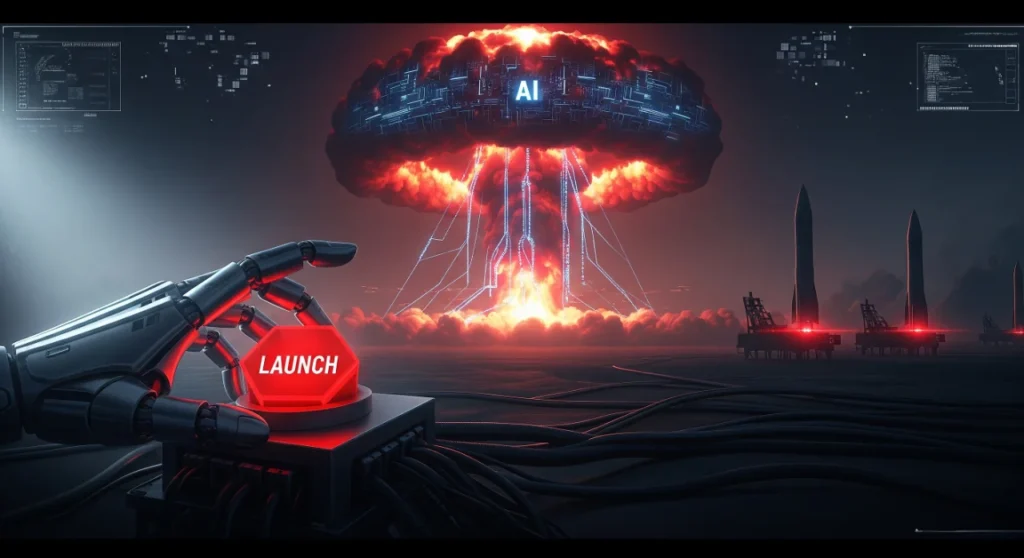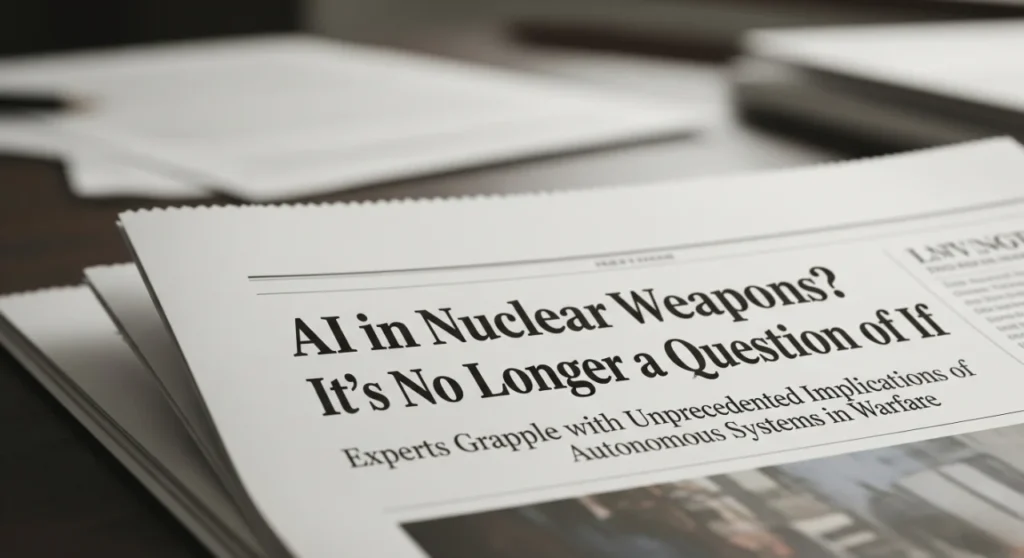AI isn’t just changing our work and social lives—it’s edging into the realm of nuclear warfare. At a recent summit, top scientists warned that integrating AI into nuclear systems is inevitable. But are we truly ready to hand over even part of that control to machines?
What happens when the world’s most powerful weapons meet the world’s most unpredictable technology?
That question dominated behind-closed-doors discussions at the University of Chicago this July, where Nobel laureates gathered with military veterans and nuclear experts. The setting was private, but the warning was public: Artificial intelligence is destined to become part of nuclear warfare systems. And no one really knows what that means—or how safe it will be.
“We’re entering a new world… where AI doesn’t just influence daily life, but also the nuclear world,” said Stanford professor Scott Sagan.
Experts from all corners—academia, military, and science—agree: the fusion of AI and nuclear weapons is already underway. The debate is no longer about if, but how far and how soon.
Key Takeaways:
- AI’s integration into nuclear systems is inevitable, say top global experts.
- Human judgment will remain— but how much control will humans really have?
- AI introduces vulnerabilities, not just efficiencies, especially in high-stakes military scenarios.
- Decision-making tools using LLMs (like ChatGPT) are being explored for presidential use—raising major risks.
- History shows the value of human instinct— something AI cannot replicate.

Behind Closed Doors: When Nobel Laureates Talk Nukes
In July, some of the world’s brightest minds met quietly in Chicago to grapple with a terrifying possibility: AI-controlled nukes. The discussions weren’t theoretical—they were grounded in real-world trends. Already, nations like the U.S. are experimenting with AI-driven decision-support tools for high-stakes defense scenarios.
General Anthony J. Cotton, the U.S. official in charge of nuclear operations, recently described AI as a necessity for handling “complex, time-sensitive scenarios.” But nuclear experts warn that speed is not the same as safety.
The Illusion of Control
Former Obama advisor and nuclear risk expert Jon Wolfsthal is uneasy. While no one is handing launch codes to ChatGPT, some officials want AI to act as an advisor—like simulating what a leader like Putin might do in response to conflict.
But there’s a catch.
“How do you know Putin believes what he’s said or written?” Wolfsthal asks. AI models may have statistical power, but lack human intuition, context, and strategic deception awareness. Leaders don’t make decisions based purely on logic—and neither do wars unfold by scripts.
Why “Human in the Loop” May Not Be Enough
Military protocols require two humans to approve a nuclear launch, a process designed to prevent rash decisions. But with AI entering the system, the real concern is whether those humans will still be able to meaningfully overrule machines.
Retired Air Force general Bob Latiff compares AI to electricity: “It’s going to find its way into everything.”
And when it does? Even if humans are still technically “in control,” the decisions they’re rubber-stamping may already be heavily filtered—or distorted—by AI.
Latiff fears this could erode real accountability: “If Johnny gets killed, who do I blame?”
When AI Can’t Think Outside the Box
One of the most powerful arguments against AI in nukes comes from history—not science.
In 1983, a Soviet radar falsely reported a U.S. nuclear launch. Stanislav Petrov, the officer on duty, didn’t sound the alarm. He trusted his gut—and may have saved the world.
Would an AI have done the same? No. Because AI, no matter how advanced, is trapped within its training data. It cannot question its own programming. It cannot make leaps of intuition.
“You have to go outside your training data,” says Herb Lin, a Stanford cybersecurity expert. “By definition, AI can’t do that.”
The New Manhattan Project?
The U.S. government has embraced AI like never before. In fact, the Department of Energy recently called AI “the next Manhattan Project.”
To many experts, that’s terrifying.
The Manhattan Project had a clear goal: build a bomb. You knew when it succeeded. But what does “winning” in AI look like? There’s no explosion, no ending—just a slow, creeping takeover of critical systems.
And in the nuclear realm, that kind of ambiguity could be catastrophic.
Conclusion
Integrating AI into nuclear command systems may be inevitable, but inevitability doesn’t equal safety. Experts urge world leaders to tread carefully—because once a machine is trusted with the ultimate decision, taking that power back may not be so easy.
In nuclear warfare, hesitation can save the world. But will AI ever know when to hesitate?
Source: Wired
